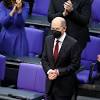Businesses turn optimistic in Q4 outlook – BSP survey


December 18, 2021 | 12:00am
MANILA, Philippines — Businesses turned optimistic with the gradual reopening of the economy, but consumers were more pessimistic in the fourth quarter due to the reimposition of strict lockdown and quarantine measures during the survey period, according to the Bangko Sentral ng Pilipinas (BSP).
Based on the results of the fourth quarter Business Expectation Survey (BES), BSP senior assistant governor Iluminada Sicat said the overall confidence index of businesses jumped to 39.7 percent in the fourth quarter after declining to -5.6 percent in the third quarter.
This was the highest level since the 54.9 percent recorded in the second quarter of 2013.
Sicat said the improved business sentiment in the Philippines mirrored the positive outlook in China.
However,consumer confidence turned more pessimistic in the fourth quarter at -24 percent from -19.3 percent due to the timing of the fourth quarter Consumer Expectation Survey (CES) which was conducted from Oct. 1 to 13 when the National Capital Region (NCR) was placed under enhanced community quarantine anew due to the emergence of the Delta variant.
Redentor Paolo Alegre, senior director at the BSP’s Department of Economic Statistics (DES), said businesses turned optimistic in the fourth quarter due to the easing of COVID-19 restrictions as well as the opening of borders.
Alegre said majority of the 1,511 firms surveyed between Oct. 8 and Nov. 18 also cited increase in demand and sales due to the Christmas season as well as the seasonal factors such as the uptick in demand and the start of the mining and milling season.
Respondents also cited the decreasing number of COVID infections amid the continuous vaccine rollout, Alegre explained.
“The positive index resulted from the combined effects of increase in the percentage of optimists and the decrease in the percentage of pessimists,” he said.
According to the release of the faster-than-expected gross domestic product (GDP) growth in the third quarter also influenced the more sanguine business expectations.
The Philippines exited the pandemic-induced recession with a GDP growth of 12 percent in the second quarter and 7.1 percent in the third quarter, prompting economic managers to raise this year’s growth target to a range of five to 5.5 percent.
Alegre said businesses are more optimistic for the first quarter of 2022 with an overall confidence index of 52.8 percent from the previous quarter’s 31.9 percent as well as for the next 12 months with 67.6 percent from 56 percent.
On the other hand, Alegre said Filipino consumer turned more pessimistic in the fourth quarter as the number of households with pessimistic views increased relative to the number in third quarter and continued to surpass those with optimistic views.
Aside from the timing of the CES, Alegre said the respondents cited higher unemployment rate, low income, ongoing pandemic, higher cases, travel ban as well as faster increase in the prices of goods, and less working family member.
“The more pessimistic consumer sentiment in the fourth quarter of 2021 was reflected across the three component indicators of consumer confidence, with the economic condition recording the lowest confidence index, followed by family financial situation and family income,” Alegre said.
Consistent with the national trend, Alegre said consumer confidence across income groups also weakened in the fourth quarter.
However, Alegre said consumer sentiment for the first quarter of next year and the next 12 months improved as the confidence index increased to 9.3 percent and 23.6 percent from the previous quarter’s 2.7 percent and 18.6 percent, respectively.
Alegre said the respondents attributed their optimism to the availability of more jobs and permanent employment, additional and high income, and effective government policies and programs.


 United Kingdom
United Kingdom Argentina
Argentina  Australia
Australia  Austria
Austria  Brazil
Brazil  Canada
Canada  Germany
Germany  Ireland
Ireland  Italy
Italy  Malaysia
Malaysia  Mexico
Mexico  New Zealand
New Zealand  Poland
Poland  South Africa
South Africa  United States
United States 














